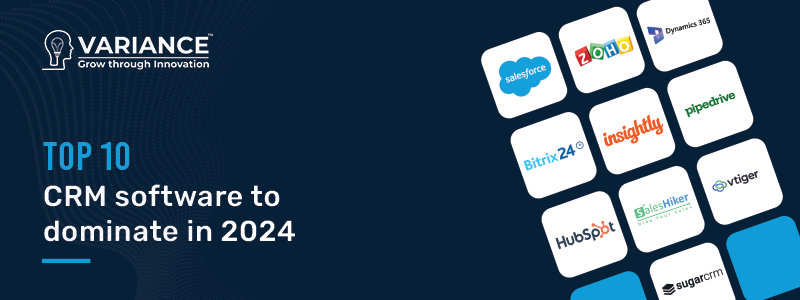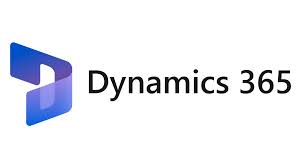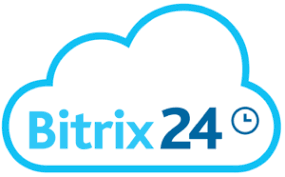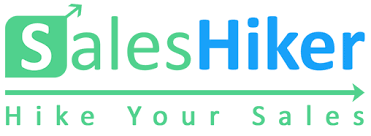
To succeed in entrepreneurship, businesses need to manage strong relationships with potential customers. Having a large customer base is essential for optimal growth and higher revenues. Talking to existing customers is essential because without understanding their needs, you can’t provide what they want.
Navigating Challenges with CRM Software
In the realm of complex business operations and an extensive customer base, the challenge lies in maintaining these vital relationships. This is precisely where Customer Relationship Management (CRM) software proves to be a game-changer.
Unveiling CRM Software
CRM, or Customer Relationship Management Software, gives businesses tools to manage their relationships with customers. This suite of applications lets businesses interact through different channels, like phone calls, website visits, emails, or social media engagements. This software addresses any gaps and makes sure business interactions are seamless.
Exploring Leading CRM Solutions
1. Salesforce: Revolutionizing Connectivity

Salesforce, the undeniable leader, continues to redefine connectivity in the digital landscape. With its robust features and seamless integrations, businesses experience a paradigm shift in customer interactions.
Key Features:
- Robust cloud-based platform.
- Extensive customization options.
- AI-driven analytics for data-driven decisions.
Salesforce Pros:
- Seamless integration with various third-party applications.
- Scalability to accommodate businesses of all sizes.
- Comprehensive customer support.
Salesforce Cons:
- The steeper learning curve for beginners.
- Higher cost compared to some competitors.
2. Zoho: Elevating Efficiency

Zoho takes the second spot, synonymous with efficiency and innovation. Its user-friendly interface and diverse functionalities make it a go-to choice for businesses seeking streamlined processes.
Key Features:
- Lead management: involves capturing leads from various sources and nurturing them through the sales pipeline. This process also includes prioritizing sales teams’ efforts through lead scoring and lead assignment.
- Integration: Seamlessly connect third-party applications like Google Workspace, Office 365, MailChimp, and Zendesk to enhance the user experience.
- Communication: This platform allows you to communicate with customers and prospects in real time through multiple channels, including email, live chat, phone calls, and social media interactions.
Zoho CRM pros:
- Offers a free plan for up to 3 users.
- Conduct meetings and presentations through the CRM.
Zoho CRM cons:
- AI-powered assistants are only available on the more expensive Enterprise plan.
- Support outside of business hours is an additional cost for customers.
3. Dynamics365: Microsoft’s Dynamic Approach

Microsoft’s Dynamics365 secures the third position, offering a dynamic approach to CRM. Integrating with other Microsoft services creates a unified ecosystem, enhancing productivity across the board.
Key Features:
- Unified platform for ERP and CRM.
- Seamless integration with Microsoft 365.
- AI-driven insights for predictive analytics.
Dynamics365 Pros:
- Comprehensive suite for end-to-end business management.
- High-level security features.
- Streamlined collaboration within the Microsoft ecosystem.
Dynamics365 Cons:
- Complexity in implementation and configuration.
- Initial setup may require expert assistance.
4. Bitrix24: Collaboration Redefined

Bitrix24 stands tall at number four, redefining collaboration in the CRM landscape. Its all-in-one suite promotes seamless teamwork, driving productivity and fostering a collaborative environment.
Key Features:
- All-in-one suite for collaboration.
- Social intranet and communication tools.
- Task and project management capabilities.
Bitrix24 Pros:
- Free plan available for small teams.
- On-premise and cloud deployment options.
- Intuitive user interface.
Bitrix24 Cons:
- Advanced features are limited to premium plans.
- Customization choices might be too much for some users.
5. Insightly: Insightful Solutions for Success

Insightly, the fifth contender stands out with its insightful solutions tailored for success. Businesses leverage its advanced analytics and reporting tools to gain invaluable insights into customer behavior.
Key Features:
- Advanced project management tools.
- Relationship linking for a comprehensive view.
- Integration with popular business apps.
Insightly Pros:
- Intuitive and easy-to-navigate interface.
- Focus on relationship-building and customer insights.
- Flexible pricing plans.
Insightly Cons:
- Limited automation features in lower-tier plans.
- Some users may require additional training for advanced functionalities.
6. Pipedrive: Streamlining Sales Pipelines

Pipedrive, securing the sixth position, specializes in streamlining sales pipelines. Its intuitive design and focus on sales processes empower businesses to navigate the complexities of the sales journey effortlessly.
Key Features:
- Visual pipeline management.
- Sales forecasting and reporting.
- Email tracking for improved communication.
Pipedrive Pros:
- Designed specifically for sales teams.
- Simple and user-friendly interface.
- Mobile app for on-the-go access.
Pipedrive Cons:
- Limited features for non-sales-related processes.
- Advanced automation features in higher-tier plans.
7. Hubspot: Inbound Marketing Mastery

Hubspot, at number seven, isn’t just a CRM; it’s a powerhouse for inbound marketing. Businesses harness their capabilities to attract, engage, and delight customers by providing insights on sales performance, customer interactions, and marketing campaigns.
Key Features:
- Marketing automation: This platform enables businesses to align their sales and marketing campaigns, providing a complete view of each prospect and client.
- Email tracking: This platform allows users to seamlessly integrate email communication with their CRM and track all contact interactions.
- Reporting and analytics: Provides insights on sales performance, customer interactions, and marketing campaigns.
HubSpot CRM pros:
- One dashboard for all marketing, sales, and customer service teams.
- Works with either individual or integrated hubs to streamline business processes.
HubSpot CRM cons:
- Limited functionality in the free plan.
- Limited customization capabilities.
8. SugarCRM: Sweetening Customer Relationships

SugarCRM, holding the eighth spot, sweetens customer relationships with its intuitive interface and customization options. Businesses tailor their CRM experience to meet the unique needs of their customer base.
Key features:
- Automation: Salesforce automation allows businesses to streamline their sales processes and increase productivity.
- Customization: This platform allows users to customize and tailor it to fit their specific sales and marketing processes.
- AI-engine: Accelerate specializes in AI-powered lead conversion, Ideal Customer Profile (ICP) development, and sales predictions.
SugarCRM pros:
- Integrate well with various third-party applications and systems.
- Provides workflow automation and advanced reporting features.
SugarCRM cons:
- It is more complex to set up and has a steep learning curve.
- The pricing can be relatively high, especially for advanced features.
9. vTigerCRM: Tailored for Versatility

vTigerCRM clinches the ninth position, celebrated for its versatility. Its adaptive features cater to businesses of all sizes, ensuring a tailored CRM experience that aligns with individual requirements.
Key Features:
- Versatile CRM functionalities.
- Marketing automation and lead scoring.
- Inventory and project management tools.
vTigerCRM Pros:
- Affordable pricing plans.
- Customizable modules for diverse business needs.
- Cloud and on-premise deployment options.
vTigerCRM Cons:
- Limited third-party integrations.
- The interface may appear dated to some users.
10. SalesHiker: Scaling Heights

SalesHiker rounds off the top 10, scaling heights in CRM innovation. Its user-centric approach and commitment to continuous improvement make it a formidable player in the CRM arena.
Key Features:
- User-centric CRM design.
- Focus on continuous improvement.
- Email tracking and communication tools.
SalesHiker Pros:
- Intuitive interface for quick onboarding.
- Competitive pricing for startups and small businesses.
- Regular updates for feature enhancement.
SalesHiker Cons:
- Limited third-party app integrations.
- Smaller community compared to industry giants.
The Road Ahead: Embracing CRM Excellence
Reflecting on the evolving CRM landscape, businesses must weigh factors like scalability, customization, and integration capabilities to make an informed decision. The journey to selecting the ideal CRM is an exploration, and these top 10 contenders serve as reliable guides in navigating the path to enhanced customer relationships and business growth.
Remember, the best CRM is the one that aligns seamlessly with your business objectives. So, as you embark on this CRM expedition, consider your specific needs and let the power of technology elevate your customer relationships to new heights.
Do You Need more information?
For any further information / query regarding Technology, please email us at info@varianceinfotech.in
OR call us on +1 630 534 0223 / +91-7016851729, Alternately you can request for information by filling up Contact Us
 Please wait...
Please wait...
Leave a Reply